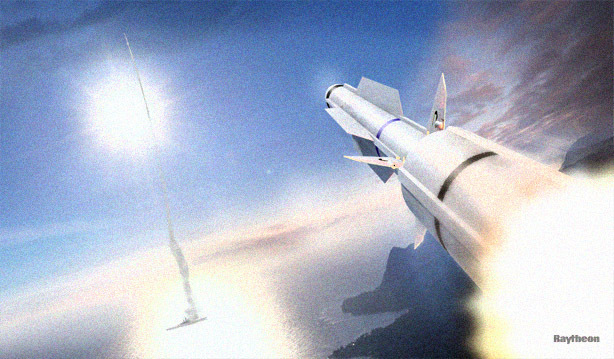North Korea’s announcement that it intends to test a long-range rocket in mid-April this year has led to much hype and speculation. In particular, analysts suggest that the launch – ostensibly part of a programme to place a satellite in space – might also be construed as a tacit long-range missile test. When combined with Pyongyang’s nuclear weapons capability, the current period of instability as the regime renews itself following the death of Kim Jong-Il, and the timing of the launch to coincide with a new round of diplomacy, the prospect of a renewed confrontation with the hermit Kingdom has led many to fear the worst. But beyond this, the proposed test also opens up another interesting question; whether Japan should use its ballistic missile defence capabilities to intercept and destroy the rocket after it is launched?
Japan has already made it clear that it is seriously considering preparing to shoot down the North Korean rocket should it pass over Japanese territory. Due to geography, any North Korean launch will probably have to pass over Chinese, Russian, Japanese or South Korean airspace, and for a variety of political and strategic reasons – not least of which statements coming out of Pyongyang – it seems most likely to be Japanese airspace that is violated. Indeed, such a move would be far from unprecedented; North Korea test fired a rocket in 1998 that flew over Japan and crashed into the sea. The concern produced by this test led to a considerable Japanese investment in ballistic missile defence technology, and to ensuring Japanese security should such a thing happen again. Japan essentially has two major concerns regarding the proposed forthcoming test; first is a traditional concern that this is secretly a weapons test, and that the launch may prove to be another development in Pyongyang’s offensive ballistic missile arsenal. The second concern appears to be about what would happen if the test goes wrong (the 1998 rocket crashed into the Sea of Japan), which could at least in theory see the rocket hit Japanese territory – albeit by accident. It is perhaps a mixture of both of these concerns that underpins Tokyo’s current thinking and potentially future actions.
North Korea’s announcement that it intends to test a long-range rocket in mid-April this year has led to much hype and speculation. In particular, analysts suggest that the launch – ostensibly part of a programme to place a satellite in space – might also be construed as a tacit long-range missile test. When combined with Pyongyang’s nuclear weapons capability, the current period of instability as the regime renews itself following the death of Kim Jong-Il, and the timing of the launch to coincide with a new round of diplomacy, the prospect of a renewed confrontation with the hermit Kingdom has led many to fear the worst. But beyond this, the proposed test also opens up another interesting question; whether Japan should use its ballistic missile defence capabilities to intercept and destroy the rocket after it is launched?
Japan has already made it clear that it is seriously considering preparing to shoot down the North Korean rocket should it pass over Japanese territory. Due to geography, any North Korean launch will probably have to pass over Chinese, Russian, Japanese or South Korean airspace, and for a variety of political and strategic reasons – not least of which statements coming out of Pyongyang – it seems most likely to be Japanese airspace that is violated. Indeed, such a move would be far from unprecedented; North Korea test fired a rocket in 1998 that flew over Japan and crashed into the sea. The concern produced by this test led to a considerable Japanese investment in ballistic missile defence technology, and to ensuring Japanese security should such a thing happen again. Japan essentially has two major concerns regarding the proposed forthcoming test; first is a traditional concern that this is secretly a weapons test, and that the launch may prove to be another development in Pyongyang’s offensive ballistic missile arsenal. The second concern appears to be about what would happen if the test goes wrong (the 1998 rocket crashed into the Sea of Japan), which could at least in theory see the rocket hit Japanese territory – albeit by accident. It is perhaps a mixture of both of these concerns that underpins Tokyo’s current thinking and potentially future actions.
Try unlimited access
Only $1 for four weeks
-
Unlimited access to all of NK News: reporting, investigations, analysis
-
Year-one discount if you continue past $1 trial period
-
The NK News Daily Update, an email newsletter to keep you in the loop
-
Searchable archive of all content, photo galleries, special columns
-
Contact NK News reporters with tips or requests for reporting
Get unlimited access to all NK News content, including original reporting, investigations, and analyses by our team of DPRK experts.
Subscribe
now
All major cards accepted. No commitments – you can cancel any time.

